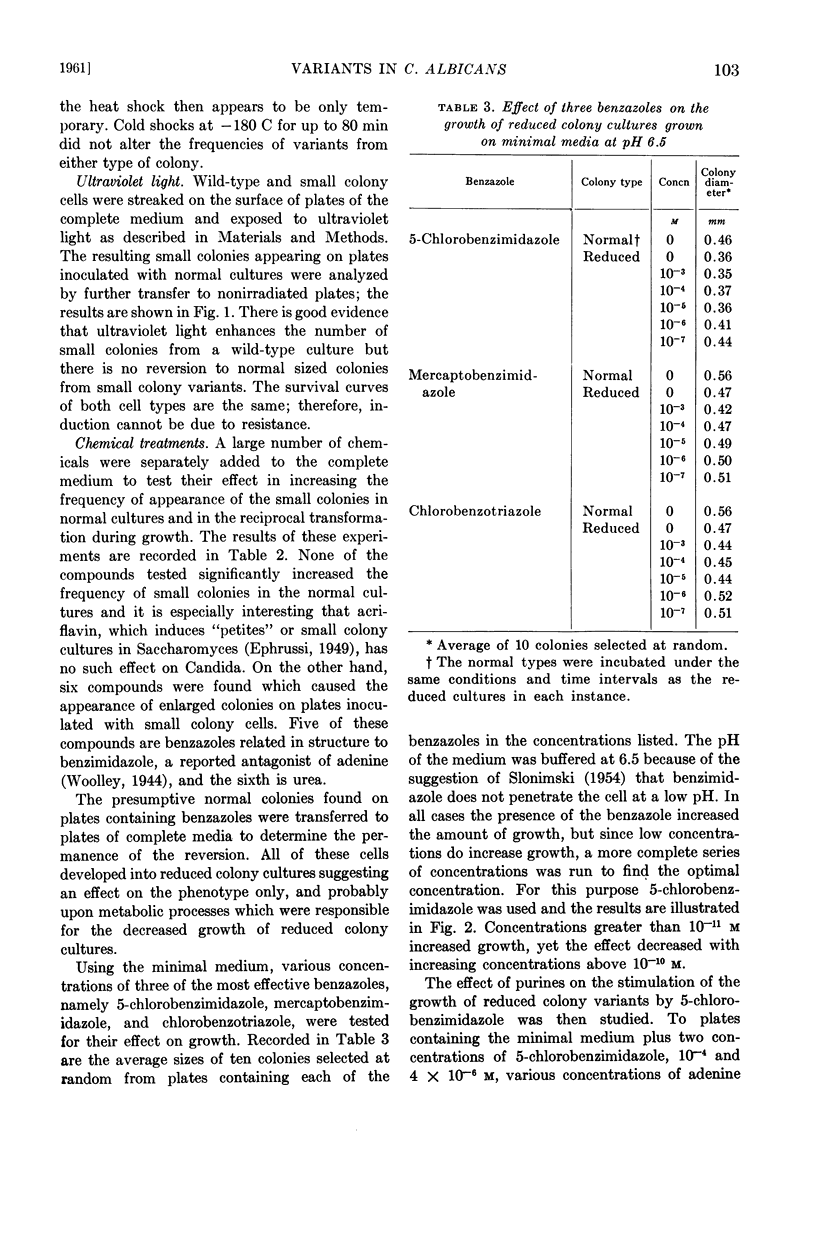Abstract
Bianchi, Donald E. (San Fernando Valley State College, Northridge, Calif.). Small colony variant in Candida albicans. J. Bacteriol. 82:101–105. 1961.—Various techniques were used to attempt to alter the frequency of wild-type and small-type colonies in growing cultures of Candida albicans. Ultraviolet light and heat shocks were found to temporarily increase the occurrence of small colonies and several benzazoles were found to increase the number of large colonies. The alteration by the benzazoles was found to be only temporary, and brought about by an increase in the rate of growth of the small type colonies. This benzazole action may be enhanced or inhibited by the addition of purines depending upon the applied concentration.
Full text
PDF




Selected References
These references are in PubMed. This may not be the complete list of references from this article.
- Klotz I. M., Mellody M. The Reversal of Benzimidazole Inhibition of Growth by Nucleic Acid. J Bacteriol. 1948 Aug;56(2):253–255. doi: 10.1128/jb.56.2.253-255.1948. [DOI] [PMC free article] [PubMed] [Google Scholar]
- Mitchell M. B., Mitchell H. K., Tissieres A. Mendelian and Non-Mendelian Factors Affecting the Cytochrome System in Neurospora Crassa. Proc Natl Acad Sci U S A. 1953 Jul;39(7):606–613. doi: 10.1073/pnas.39.7.606. [DOI] [PMC free article] [PubMed] [Google Scholar]
- SLONIMSKI P. P. Sur l'inhibition de la croissance de la levure par le benzimidazol: mécanisme de la reversion de l'inhibition. Ann Inst Pasteur (Paris) 1954 Oct;87(4):404–412. [PubMed] [Google Scholar]


